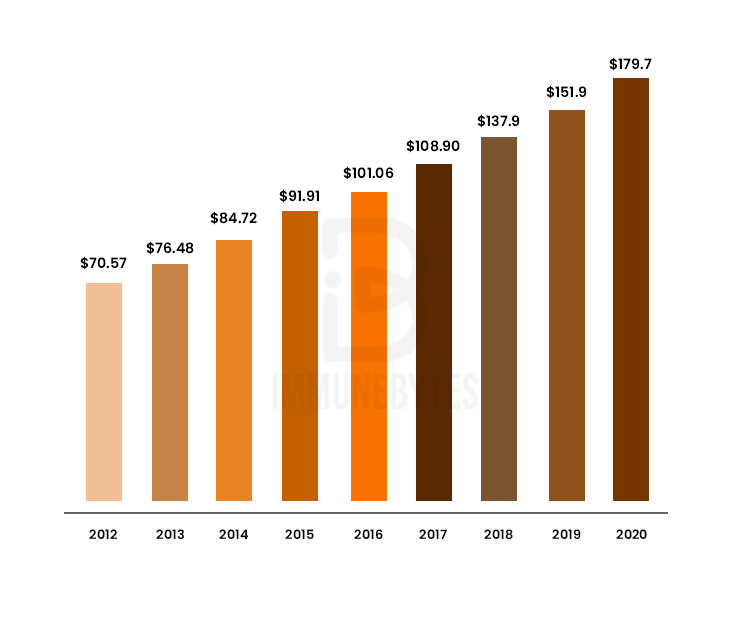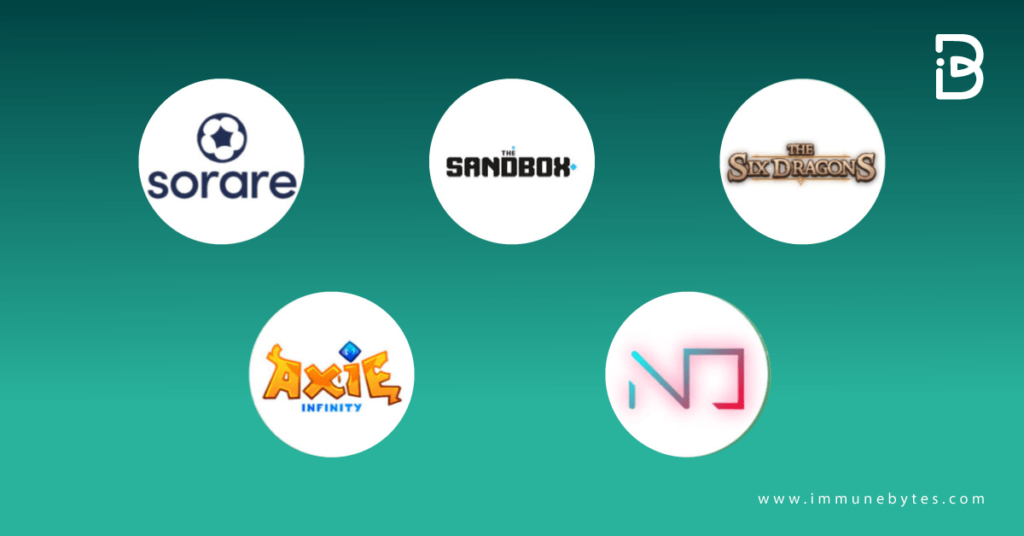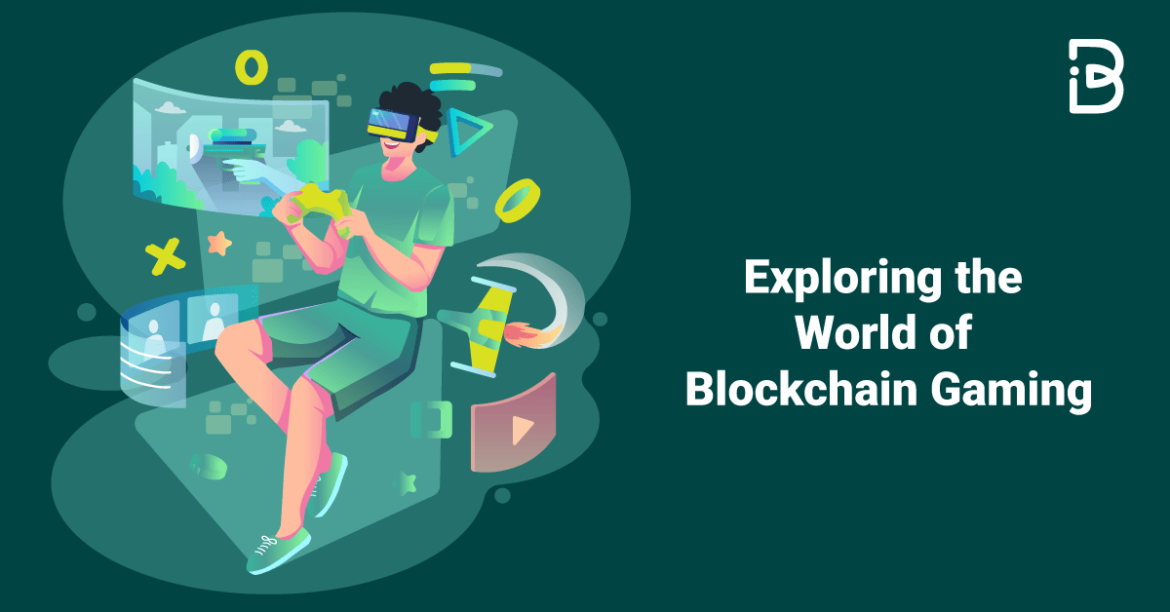Blockchain and Gaming are two sectors that have been talked about in unison for a very long time. So much so that gaming is said to be the first real use case of blockchain, the two are the perfect combination or we think!
In recent years, blockchain has revamped the gaming industry to a great extent, making games more immersive and boundary-blurring than ever. Blockchain could completely restructure the industry, turn the tables on the monopolistic console market, and possibly even make multiverses a childsplay for developers.
Let?s begin this exploration by jumping onto the specifics of the gaming industry!
What Makes or Breaks a Game?
Table of Contents
The gaming industry is considered to be one of the most exciting and progressive industries in tech because of its culture, entertainment factor, and the technological advancements that it has offered. Gaming has been a journey, it has evolved from exceedingly humble beginnings.
The growing adoption of video games as a leisure activity among all age groups in addition to the rising trend of professional gaming has aided the expansion of the market. In 2020, the global gaming industry?s revenue is set to hit $165 billion, with 2.7 billion gamers worldwide.

Worldwide Video Game Industry Revenue by Year (Billion USD)
Listed below are some of the characteristics and dynamics of the gaming industry that make it a rapidly growing sector.
- You need money to play popular games. While some of them allow a player to accumulate digital gold, that?s too inconvenient for most players because it takes time. Most players spend their fiat money to buy in-game assets.
- Game entrepreneurs and developers need a safe and secure environment to develop and launch games and subsequently, monetize them.
- Players need to securely buy and sell in-game assets; hence the need for safe platforms.
- This trend of people projecting value on intangible assets is real and it?s only going to get bigger in the future. Thus, more and more real money is spent on virtual games.
- Where a player?s assets are stored also makes a huge impact on the popularity of the game. These assets are currently stored in the gaming company?s centralized server, making them an easy target for hackers.
And we now have a technology that makes achieving these gaming dynamics 10x easier!
Of course, we?re talking about the Blockchain.
Blockchain: A tour de force?
Gaming needs to be more open-source and secure. And arguably, with its principles of openness and decentralization, the ethos of blockchain fits perfectly.
Verifiability and Transparency
The biggest hurdle faced by the gaming industry is the lack of transparency and trust between the developers and players. The economy is in total control of the game developers, which to be honest sounds tricky.
Blockchain offers to tokenize the in-game assets which are then open and accountable. The ledger is open for anyone to verify, this increases the trust factor. Also, gamers can visit the decentralized markets to buy virtual assets at a fair price based on an open order book.
Security
The one thing blockchain is known the most for!
Most gaming platforms are hosted on centralized servers and the security measures employed are not adequate. Also, assets in games are liable to be stolen. Blockchain is designed to be ?unhackable?. Storing digital gaming assets on a blockchain would enhance the security of a player who has worked hard to collect them.
In-game Purchases & Secure Storage of Digital Assets
Hackers love centralized servers! It?s just one stationary target for them, all they need to do is simply break the encryption and that?s it. All assets stored on the server are theirs.
Blockchain technology in the gaming industry mitigates the concern. When players buy digital collectibles in your blockchain-based game, they can store them securely in their crypto wallets.
Blockchains can also store value in the form of non-fungible tokens. NFT peeps have started to flock to gaming because they can do something gamers have wanted to do for decades: they can move and sell items. Games have highly valuable assets that are unique and collectible. NFTs could be used to represent these items and make them easy to store on a wallet, and cheaper to sell and trade on an open market.
Time and Cost of Transactions
Gaming is not limited to a country, yes. So, how are players supposed to transfer money without it taking days to reach the other party?
Blockchain to the rescue! It enables instant payments across borders without any restrictions.
Not only for players, but blockchain also opens several new and exciting doors for game developers. Blockchain games are open-source, and developers can view the code of similar games if they need guidance. It offers a larger area for flexibility and innovativeness.
These are some of the major features that have been driving blockchain adoption in the gaming sector at such a fast pace. We all know about CryptoKitties but some of the top trending blockchain games in 2021 are:

- Sorare Fantasy Football
- The Sandbox
- The Six Dragons
- Axie Infinity
- Neon District
And some notable breakthroughs in the industry:
- Ripple combined forces with blockchain gaming company Forte to create a $100 million project aimed at fusing blockchain and gaming.
- Last year, Mangrove Capital (of Skype and Wix fame) put $5 million into the esports/blockchain platform DreamTeam.
- 2020 also observed Tron investing $100 million towards its blockchain gaming fund, Tron Arcade.
Wrapping Up
As it makes transactions more transparent and efficient for players, blockchain can revolutionize the gaming world by creating opportunities for players and developers to enable a new entertainment market.
The intersection of blockchain and gaming makes up for a very exciting world. As technology advances, it will create an ecosystem that is invincible and works seamlessly.
About Us
ImmuneBytes is facilitating blockchain security services by employing the use of cutting-edge techniques on smart contracts and decentralized applications. We have a team of experienced security professionals who are adept at their niches and provide innovative solutions and consultation. So far we have worked on 155+ blockchain start-ups on different blockchain frameworks, with clients spread across the globe, and are continually unfolding ourselves to make this decentralized movement thrive.
Additional Resource
BLOCKCHAIN AND METAVERSE: WHERE CRYPTO, GAMING, AND CAPITALISM COME TOGETHER

